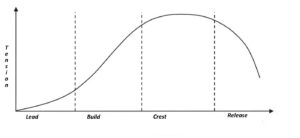Whether you lead an enterprise, an agency, a recovery center, or a family, you’re probably already aware of the powerfully transformative technology that we call music. The trouble is, most of us have forgotten how to use music purposefully and at scale. Before we get to that, let’s review four important ways that music works in groups.
Wellness
In the clinical world, this is also called “intervention,” which means interference with feelings, actions, and words that are detrimental to progress. Stopping the bad stuff is one half of the equation. The other half is replacing the bad stuff with good stuff that helps. Wellness is when we know how to do that in a self-sustaining and self-perpetuating way.
Music is a key factor in MEPS (mental, emotional, spiritual, physical) wellness. Because music works over time, a music practice can engage us in longer-term wellness than we’d get by dropping into an app. Also, because music can work in the background, it’s possible to combine a music practice with other activities, such as exercise, being productive, relaxing (we all know about that one!), or more advanced endeavors, such as deploying a successful DEI or education program, and to realize durable long-term, evidence-based results.
Why?
Music itself is a MEPS tool. When you engage in a music practice, you get all four results simultaneously, and wellness is a great place to start, especially in a group.
Psychological Safety
The growing awareness of psychological safety can be frightening. Music, however, gives groups a way to operate in safety. For example, while you and I might disagree about social issues or politics, and while we might actually enjoy very different kinds of music, the MEPS abilities of music offer us a way to connect that goes beyond our beliefs, likes, and dislikes.
How?
Shared music making or music listening have been aspects of every culture of civilization for a long long time. There’s a kind of non-verbal access we have to one another that is a function of the music experience – any performing musician knows how this happens in a band – and that connection around music is why bands that are actually fairly fractured individually can still come together and make astoundingly beautiful music together. All the differences we have dissolve in a group music practice and although the concert ends, everything works for those brief shining moments of productivity.
A music practice guarantees participants this kind of safety precisely because it’s not about our differences as individuals and is very much about the skills we bring to the group effort itself. Who wouldn’t want that MEPS factor in a group effort? And knowing one is safe in one’s cherished music, who wouldn’t want to go there?
Bonding
I’ve thought long and hard about how to express the cohesion that happens within a group music practice, and the word “bonding” is the best I’ve come upon so far. Perhaps “purpose-based bonding” expresses it better, but the notion of engaged teams also conveys part of what a group music practice can do.
Humans tend to bond selectively for a purpose: work, school, volunteer projects, and family are good examples. Using music to facilitate those bonds goes far beyond the mental or physical aspects of group bonding to engage the emotional and spiritual connections that guarantee full engagement. To bond in this way requires more than a verbal or written contract; it takes a pathway toward what sportsball fans feel as team spirit. As a MEPS technology, music opens that potential right from the start, and the bonds that can be built are durable, stimulating, and deeper than any handshake or piece of paper. They are also appropriate since a music practice by its very nature isn’t bound to a single culture or mindset – in fact, different cultures have bonded through music for generations.
Why?
Because music invites curiosity, offers safety (as we’ve seen above), makes no demands, and both soothes and excites the imagination – provided we allow it. Allowing it is where a skillful music practice takes place, and, as a by-product of such a practice, participants also sharpen their listening and attention-giving skills.
Non-Linear Thinking, Paradox, and Creativity
“Learning to think like a musician” might be a shorthand way of conveying the potential for inspiration that is within music, but it is so much more than thinking or even thinking outside the box. The musician often makes associations with disparate ideas (chords, melodies, even poetical lyrics), it’s true, but that kind of skill is available to anyone who is open to the influence of music. Remember, music is a MEPS technology, so openness and curiosity in one aspect, the mental one, also impact other aspects in the same ways. That is, music opens the mind, the heart (speaking metaphorically here), the spirit, and the physical system in ways that we’ve attempted to open in a much more one-by-one fashion for far too long.
How?
Don’t read me wrong here: education of the mental faculties and genius-level capabilities are marvelous and at the same time marvelously rare. The evidence about music’s ability to enhance the development of the head brain and motor skills in childhood as well as the work done by exploratory neuroscience indicate that neuroplasticity is a lifelong capability we can use right now. Why not put a music practice to work, if only to amp up the mental and emotional capabilities latent within a group?
Beyond that, you’re also assured that the group will benefit physically (energetically might be the word here) and spiritually (MEPS again) with a music practice, and, whatever your beliefs about the nature of spirituality, if you think of it as the basket of everything Science has yet to measure or understand, you’ll get some idea of the additional untapped potential in your group.
What’s A Music Practice?
Unlike recreational music-making (a clinical term used by music therapists who lead instrumental or vocal improv groups or drum circles), Musimorphic™ music practices don’t require any music-making skills. In fact, our entire suite of programs is based on listening, but the ears are just one access point to the scalable, easy-to-deploy, evidence-based technology we offer. Anyone can learn a music practice and connect it with a purpose with just a few hours of heuristic engagement in our programs, and since the programs themselves are immediately customizable to the participants (we start with music you love and build from there) there are no cultural barriers to entry.
Want to know more? Let’s discuss these four important ways music works in groups and more.
__________________________
Bill Protzmann has advocated for improved consciousness for over thirty years. With an understanding of music, you can build skills such as those discussed here: intuition, intention, and compassion. Learn more about this work and take the online heroic Quest for transformation at Quest.Musimorphic.com



